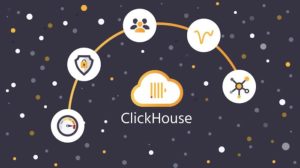
Shutterstock
ClickHouse, known for its high-performance columnar database technology, has secured $350 million in Series C funding to address the growing demand for real-time and scalable analytics in the AI era.
In a market where traditional databases are buckling under AI-native workloads, the new funding could be exactly what ClickHouse needs to capitalize on its architecture’s speed and scalability advantage.
The latest funding round was led by Khosla Ventures, with participation from new investors BOND, Bessemer Venture Partners, IVP, Battery Ventures, and, as well as existing investors including Index Ventures, GIC, Benchmark, Lightspeed, Nebius, Coatue, and FirstMark.
The fresh capital takes the total funding to over $650 million. Along with the new financing, ClickHouse has reached an agreement for a $100 million credit facility led by Goldman Sachs and Stifel.
The company shared that it is using the combined funding to focus on scaling its product development, supporting its global expansion, and strengthening its partnerships with key tech players who are “building the next wave of AI-native applications”.
ClickHouse grew by over 300% during the past year and is keen to keep the momentum going. It now serves over 2,000 customers across a range of industries like fintech, transportation, and healthcare. Major players in AI and technology, such as Anthropic and Tesla, have adopted ClickHouse – a sign that ClickHouse is becoming a serious contender in the race to process large-scale, AI-driven data workloads.
The main source of revenue is its managed service, ClickHouse Cloud – a ready-to-use version of the database that helps customers scale and manage their data more easily.
At its core, ClickHouse’s namesake database functions as a relational database, organizing data in row-and-column formats. However, unlike conventional relational databases, ClickHouse is based on columnar architecture, which allows it to significantly accelerate analytics workloads. Other performance optimizations, such as using vectorized query execution to run queries in bulk rather than one by one, help further boost speed and reduce query completion times.
Along with improved speed, Clickhouse’s other key advantage is that it is designed to scale. The company claims the system is designed for high-performance analytical queries on tables with trillions of rows and hundreds of columns.
Originally, ClickHouse relied on the open-source tool ZooKeeper to coordinate its servers. But a few years back, the team built its own alternative, ClickHouse Keeper, which cuts down on restarts and takes up less storage, making system maintenance smoother.
Now, the Palo Alto-based company is pushing further into the AI agents space. As highlighted in its latest press release, ClickHouse positions itself as an “agent-facing” database. ClickHouse claims its architecture is purpose-built to meet modern data demands, positioning itself as a key technology provider for AI-native applications and automated decision-making systems.
“As AI agents proliferate across data-driven applications, observability, data infrastructure, and beyond, the demand for agent-facing databases like ClickHouse has reached an inflection point. The future of analytics isn’t just dashboards. It’s intelligent agents that interpret data, trigger workflows, and power real-time decisions,” said Aaron Katz, CEO of ClickHouse.
“But AI is just one driver. We designed and built ClickHouse from day one to support a broad spectrum of real-time data applications across industries, and our momentum reflects that enterprises are hungry for a platform that can keep up with their scaling ambitions.”
One of the key challenges ahead for ClickHouse would be to balance its open source roots with its commercial expansion, especially with ClickHouse Cloud. This will require carefully managing community trust while ensuring that commercial priorities don’t alienate the developer base that helped fuel its early growth.
It also faces tough competition from major cloud providers and rival analytics platforms, as well as the technical challenge of keeping performance and costs under control as it scales globally. Like other players in the AI arms race, how ClickHouse leverages AI agents within its platform will be key – but for now, investors seem confident in its potential.
“We invested in ClickHouse because they’re solving one of the most important infrastructure challenges of this era of AI and agents: enabling real-time data platforms that can support both traditional analytics and the growing demands of AI-native workloads,” said Ethan Choi, Partner at Khosla Ventures.
“As AI reshapes every industry, the ability to deliver fast, scalable, and cost-efficient analytics is becoming foundational,” continued Choi. “ClickHouse is poised to become the default engine for next-generation intelligent data products.”
Related Items
Don’t Believe the Big Database Hype, Stonebraker Warns
When Should You Choose a Dedicated Vector Database?
IBM to Buy DataStax for Database, GenAI Capabilities





